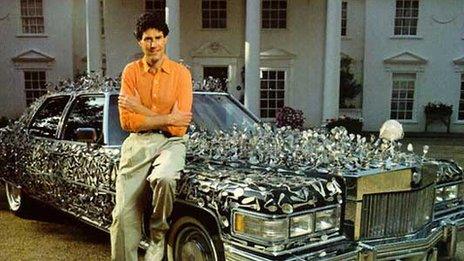Ironworks centre plans knife angel after Uri Geller gorilla
- Published
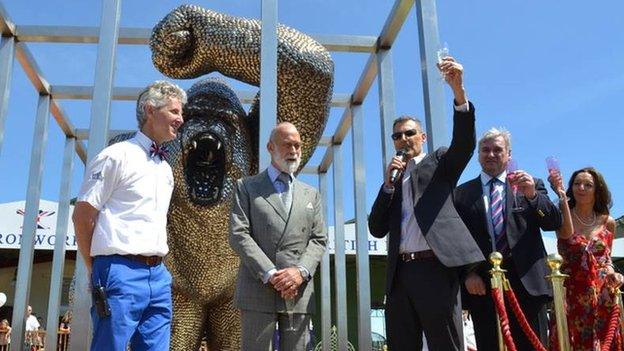
The gorilla was unveiled by Prince Michael of Kent, with Uri Geller leading 250 people in a toast to the statue
A team responsible for creating a huge statue of a gorilla made out of spoons for Uri Geller have said they could next build a angel made of knives donated by gang members.
The 12ft-high (3.6m) gorilla was unveiled by Prince Michael of Kent on Saturday at the British Ironworks Centre in Oswestry.
It is due to be transported to Mr Geller's home in Berkshire on 28 May.
The centre said the next project would not just be art, but could save lives.
Clive Knowles, Managing Director of the British Ironworks Centre, said: "We want to do an enormous angel that would represent love and hope and people that are lost."
He said the team were going to launch their Save a life, Surrender a Knife appeal and admitted finding a large number of weapons would be the biggest challenge.
He added that it could help to "re-energise" a number of knife surrenders and amnesties organised by police forces across the country.
'Sick' of spoons
Mr Knowles said building the gorilla had been a "rollercoaster ride" and had given them "a huge appetite" to take on an other challenge.
Alfie Bradley, who welded the 40,000 spoons to the sculpture, said he was also looking forward to the next big project, although he had become "sick" of the sight of spoons.
Mr Knowles said the team could also invite current and former gang members to the British Ironworks Centre to help build the angel.
The gorilla project saw spoons donated from across the world, including China, Armenia, Uganda and Tahiti - many sent in by school children.
Spoon banks were also placed in schools across Shropshire, Staffordshire and Cheshire.
After spending time at Mr Geller's home, Mr Knowles said the team were hoping to find a permanent home at a site where it could be seen by children.
Mr Knowles said the project had cost the firm about £120,000 in staff hours to find the spoons, but that social media had played a large part in the appeal.
- Published17 May 2014
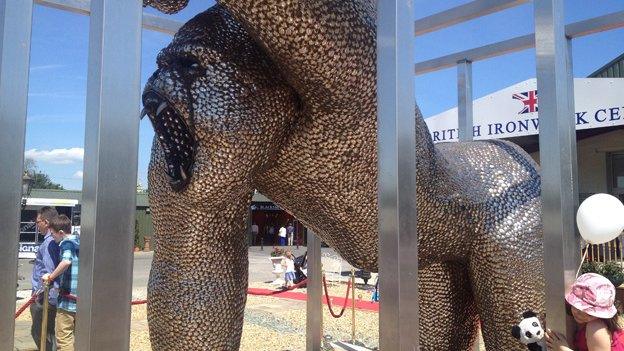
- Published18 January 2014
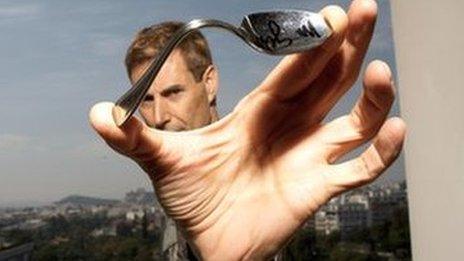
- Published14 October 2013
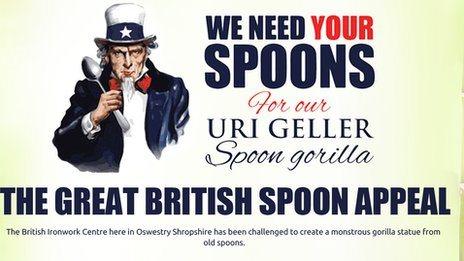
- Published8 October 2013
